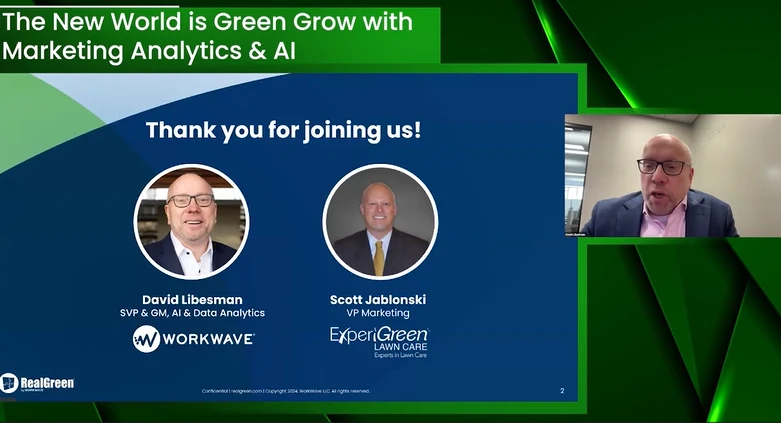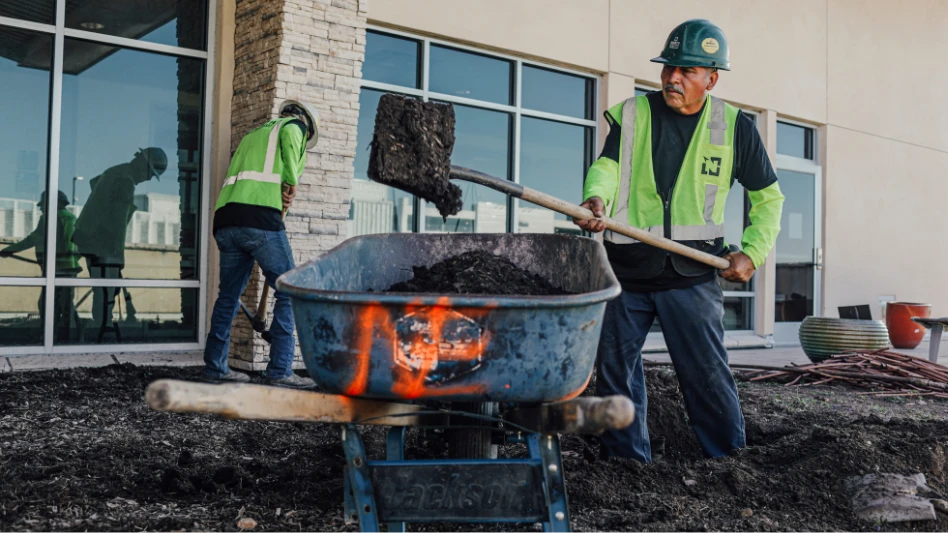 Landscapers still using Windows XP after April 8 will be courting peril, according to countless IT experts, given that all Microsoft support for the operating system ends on that day – leaving XP forever vulnerable to new security breaches.
Landscapers still using Windows XP after April 8 will be courting peril, according to countless IT experts, given that all Microsoft support for the operating system ends on that day – leaving XP forever vulnerable to new security breaches.
“The importance of upgrading from Windows XP cannot be overstated,” says Tim Rains, director of Microsoft Trustworthy Computing. “We truly want people to understand the risks of running Windows XP after support ends, and to recognize the security benefits of upgrading to a more modern operating system.”
At your own risk.
Of course, despite the warnings, there still will be some hold-outs. Richard Arlington, founder of Richard Arlington & Associates, a green industry consulting firm, says he plans to resist abandoning Windows XP to the bitter end.
Sure, Arlington says he has heard about the security concerns. But he is holding out hope that a major security company like Norton or Kapersky might step up and decide to take over the job of creating security patches for Windows XP later this year.
“This is a perfect opportunity for an entrepreneurial company to step in and save XP,” Arlington says. “My advice to landscapers is don’t change until you have to. I personally stayed on Windows 97 forever – until I had to buy a laptop and I was forced to upgrade to XP.”
But IT security analysts counter that landscapers sticking with XP will have to deal with hackers who will have a field day poking holes in XP’s security after Microsoft abandons the OS in April. Those hackers know that any security vulnerabilities they find in XP will no longer be patched by the software maker after April 8.
IT security analysts also predict that a rash of hacker attacks will be unleashed on unsuspecting XP users as soon as the deadline passes.
The reason?
Many hackers are currently discovering and squirreling away new flaws in XP’s security, knowing these vulnerabilities will last forever once XP takes the dirt nap.
More than 12-years-old, the extremely popular Windows XP is still used by 31 percent of PCs worldwide, according to Net Applications, with business use much higher.
Indeed, a fall 2013 study by Dimensional Research found that 47 percent of businesses worldwide had not completed their migrations from Windows XP to Windows 7 or 8. Moreover, an additional 16 percent had not even started to migrate.
“The deadline is looming,” says Mahesh Kumar, chief marketing officer for BDNA, an IT consulting firm. “People are now saying, ‘Oh my God. I have to get it done.’”
Fear of the unknown.
The extreme reluctance of landscapers and other businesses to migrate from XP has been a source of much anxiety at Microsoft, which for years has been beseeching firms to move to more modern versions of the operating system.
The problem, in part, is that XP was – and is – a home run for Microsoft. Over the years, the OS has earned a reputation as very stable and very reliable. Plus, XP runs many software programs that are simply not compatible with later versions of Windows – a major sticking point for businesses.
Understandably, businesses are in no rush to migrate away from XP, knowing full well they’ll also be forced to re-purchase newer versions of the same applications that run just fine on their XP computers.
The reluctance to upgrade has also been exacerbated by the memory of landscapers and at other businesses of Microsoft’s release of Windows Vista, which initially had major compatibility problems with peripheral hardware, and ran slower than XP on many PCs.
And while Microsoft’s follow-up OS, Windows 7, was generally cheered, its latest offering – Windows 8 – again has the company in the dog-house. This time, the newest version of Windows has drawn a rash of sneers for its radical new look-and-feel, which is designed to force-feed touch-screen computing to traditional PC users, like it or not.
Even so, amidst all the reluctance and amidst all the recent grimacing over Microsoft’s latest moves, landscapers still running XP are staring at a hard truth: Either migrate to a a newer version of Windows – or another operating system, such as Linux, Apple’s iOs or Android – or make preparations to take a seat in the “Windows XP Next Victim Shooting Gallery.”
“This may feel like a scam by Microsoft to force you to spend money on an upgrade, but it’s actually a natural part of the software lifecycle,” says Jerry Fett, CEO at Smart IT, a computer consulting firm.
“Upon upgrading from XP to Windows 8, you may be pleasantly surprised to see a performance boost after dealing with XP after all these years. This is primarily because XP came out before the latest and most commonly-used solutions were even conceived.
"Think back to what the Internet was like twelve years ago – that’s what XP was designed for. Running new software on a new OS will yield you maximum productivity.”
The author is an Internet speaker and business consultant based in Manhattan, New York.
Last-ditch security options
With the inevitable end of security updates for Windows XP approaching, at least you’ll have some tools to get you through.
Microsoft: Microsoft has a few tools to help landscapers migrate from Windows XP, including the Microsoft User State Migration Tool bit.ly/llmigrate.
Dell: The company is offering a soup-to-nuts service to help businesses migrate to more modern versions of Windows. For more information, check out: bit.ly/lldell and bit.ly/lldell2.
 HP: This major PC player also offers a comprehensive migration service at bit.ly/lldeploy. “By working with a company such as HP, which has hardware and services solutions in place, businesses can almost immediately start realizing the benefits of Windows 8 and Windows 7,” says Enrique Lores, a senior vice president at HP.
HP: This major PC player also offers a comprehensive migration service at bit.ly/lldeploy. “By working with a company such as HP, which has hardware and services solutions in place, businesses can almost immediately start realizing the benefits of Windows 8 and Windows 7,” says Enrique Lores, a senior vice president at HP.
HP is also advising businesses to use its HP Connected Backup 8.8 service at bit.ly/llautonomy, which enables a business to back up all its data in the cloud, and enables IT administrators – as well as users – to access that data using their newer version of Windows.
XPMigrations (www.xpmigrations.com): Smaller- to medium-sized landscapers may want to check out this co-op community: It’s a nationwide group of independent, certified IT pros who specialize in migrating businesses from XP to Windows 7, 8 and other operating systems. The community is also hosting a series of ongoing, XP migration seminars in major cities across the U.S.
Migrate 7 (bit.ly/lltranxition), by Tranxition: This is simple migration software that preserves a PC’s “persona.” Migrate 7 automatically locates, stores, transfers and reconnects user settings and data files. Similar software can be found with Google keyphrase, “Windows XP migration software.”
The Pro and Enterprise Versions of Windows 8: Both of these versions of Windows 8 enable a landscaper to run a “virtual” copy of another operating system – including a virtual copy of Windows XP. (There have been reports that getting this feature to work is difficult or impossible on some PCs.)
In practice, this enables a landscaper to run both XP and Windows 8 on the same PC – and most importantly, to run all those XP programs that they would otherwise have to abandon if they simply ran Windows 8 on their machines.
Essentially, running a virtual copy of XP on Windows 8 is a great, short-term fix to slowly move a business from XP to Windows 8. But after April 8, the safest course is to run the virtual copy of XP only when the PC is not connected to the Internet, to avoid potential Internet viruses and break-ins.
The Windows 7 Pro, Ultimate and Enterprise versions also offer a similar virtualization – Windows XP Mode. But some users have complained that XP Mode on Windows 7 slows down their applications.

Explore the April 2014 Issue
Check out more from this issue and find your next story to read.
Latest from Lawn & Landscape
- Ever-changing landscape of SEO
- Fleetio acquires Auto Integrate, raises $450M in Series D funding
- Davey Tree expands in St. Paul, promotes Ostlie to district manager
- Schill Grounds Management taps 3 for senior leadership roles
- HD Hyundai Construction Equipment North America adds to wheeled excavator lineup
- High maintenance
- From Design to Proposal: Estimating and Rendering Support Services
- PERC adds Joel Stutheit as senior manager of business development





